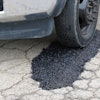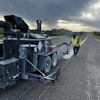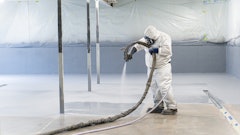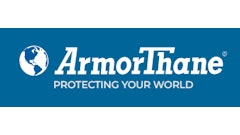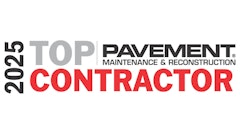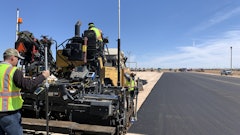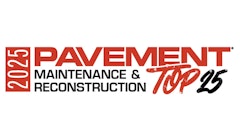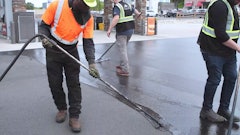Despite the fact that the Austin study is considered flawed in many respects, the city's decision to ban coal tar sealer has raised concerns throughout the sealcoating industry.
Bill Maclean, sales manager at The Brewer Company, says the sealcoating industry has been combating the Austin study and actions since the beginning, including attending many of the city council sessions where the study and the law were discussed. The sealcoating industry has been challenging this information, largely on the basis that the research is fundamentally unsound (see sidebar), since the results were announced. In fact Coopers Creek Chemical Inc. has established a website (www.thetruthaboutcoaltar.com) specifically to combat the Austin studies. Details of both Austin studies are available from the site, as is information about the flaws in the two studies.
"We were among the companies representing the industry at the Austin city council meetings so we've been involved from day one," Maclean says. "But I can't tell you how it's all going to go. We're trying to do what is responsible for our industry, whatever that is, but we want to make sure that the studies and analysis and final decisions are responsible ones."
While industry groups believe the two Austin studies to be flawed, the concern of regulation and restriction of refined coal tar as a pavement sealer has at least one of the tar processing firms rethinking its participation in the sealcoating industry.
"As a producer of refined coal tar I've got to step up and say, 'What does the future hold against these environmental pressures?' and I don't want to just plan out there with these environmental pressures hanging over our heads," says VFT's Mike Sutton. "I think it's going to be a major issue and I think it's going to snowball.
Sutton says he expects coal tar sealer to be phased out in the industry over the next two or three years.
Al Morris, Coopers Creek Chemical, however, says he thinks the industry will be successful "disputing unfounded claims."
"Barton Springs is not a done deal. We still have some hope we can get that reversed in the other direction," Morris says. "It's really hard for me to believe that the high PAHs came from parking lot sealer, especially when you consider the history of the property in the study. I just don't think it's a thoughtfully done study. There's a lot of bad science in there. I think we're going to be successful. It's hard to combat bad publicity but once people start looking at the facts it becomes obvious what's right."
Lee Lowis, Surface Coatings Inc., says he thinks the Austin, TX, issues and their snowball effects will probably be the determining factor about what happens in the sealcoating industry.
"That study, flawed though it is, has resulted in other communities taking a look at refined coal tar as a pavement sealer," Lowis says. "None of us want to cause any health hazards but it would be nice if there were an independent study with solid and unbiased results out there we could rely on rather than the flawed Austin study, which is really basically just a high school science project," Lowis says.
Girish Dubey, president of STAR Inc., adds that the Barton Springs study "overextrapolated and stretched the truth."
"If you look at where the PAHs were and how they collected the samples, it was all done very unscientifically. It seems like they are on a mission to prove coal tar releases PAHs. It seems like they had an agenda to begin with and then followed that agenda and collected data to suit their conclusion."
Tim Vance, Vance Brothers, stresses that concern for the environment is important for all the coal tar processors and sealer producers.
"But it's all happening awfully fast. Austin made a politically expedient decision but once that snowball starts it's hard to stop it and that's what's happening now," Vance says. "Whatever the outcome is, it needs to be based on science and not political expediency."
Lowis says if the industry is forced to stop using refined coal tar, then all producers and contractors will be faced with the same situation.
"If the industry is forced to use asphalt-based sealers the type of material will cease to be an issue because we'll all be in the same boat," Lowis says.
But Morris says he thinks refined coal tar sealer will be vindicated.
"If we exclude the environmental issues, which we've spent a lot of time and money trying to make people aware of and fight, I don't know why anyone would not want to use coal tar sealer. We've been in business for more than 50 years and it's the best product out there for protecting asphalt pavements. It's as simple as that."
